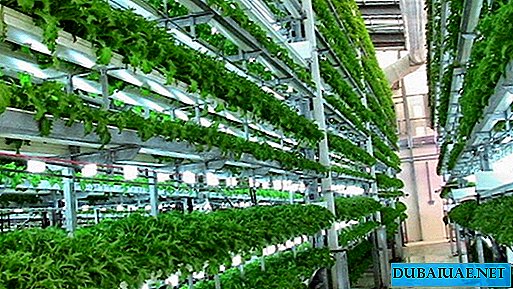12,000 HECTARES OF GREEN PLANTS WILL BE PLANTED TO “EXPO 2020” IN DUBAI, WHICH ARE SIMILAR TO THE AREA OF 15 THOUSAND FOOTBALL FIELDS. THE MOST BEAUTIFUL EMIRATE WILL BECOME MORE AND GREENEST.
From the sultry desert to a verdant oasis. This is exactly what the Sheikh Zayed, the first president of the UAE and the father of the nation, dreamed of seeing the emirate land: thanks to him, the busy routes from Abu Dhabi to Al Ain and Dubai became the new home for almost 100 million date palm trees, forming the so-called "green belt" of the Emirates. And environmental initiatives do not end there. Dubai headed for the arrangement of all-season tropics - palm groves and exotic jungle. Protection from sandstorms and drought faded into the background: exclusivity and a craving for luxury came to the fore.
The jungle's name
The prestigious Dubai district of Al Barari is called the "oasis of the soul": 80% of the entire territory is occupied by green spaces, ponds and other elements of landscape design. Plants protect the ecological settlement from excessive sunlight and heat, and water bodies cool the air by evaporating moisture. All greenery comes from the Greenworks Garden Nursery, where more than 700 types of crops, including tropical ones, are grown. The unique landscape allows you to restore lost in the city bustle with nature, and in the local restaurant The Farm you can enjoy healthy vegetarian dishes and just have a good time surrounded by lush gardens and cool ponds.
Dubai goes green
Purobeach Beach Club, another Dubai green oasis, is the epitome of Mediterranean lifestyle. It has everything except orange groves: private bungalows, comfortable sun loungers by the pool, the rhythms of famous DJs and a wide selection of elite drinks, cocktails and snacks. In the shade of tropical palm trees, away from the hustle and bustle of the city, you can spend the whole day. The first Purobeach opened last winter at the Conrad, followed by JA Resorts & Hotels. Elite urban oases under the Arabian sun will be more.
Botany lessons
One of the advanced modern ideas of reconciling the city and nature was the phytowalls of the French botanist and designer Patrick Blanca. The master creates such walls for a quarter of a century, most recently debuting in Dubai. Living Wall at Sofitel The Palm Resort - 600 square meter green canvas m - looks away and seems to stretch for a kilometer.
The passage through the hotel turns into a walk through the Polynesian forest, where the famous fern bark grows - a symbol of peace and harmony of the Maori tribe - and many more exotic flowers and shrubs. All of them are suitable for growth without natural light and without soil - only on vertical support. The walk is excellently refreshing, and the "forest" is an ideal refuge in the hot summer season.
All to the garden!
One of the greenest resorts in Dubai is considered the Palm Tree Court Hotel & Spa in the Jebel Ali area. Lush tropical gardens with soft cascades of waterfalls and the tranquility of mirror ponds create a real magical oasis. Here peacocks are serene walking and rabbits are jumping. Fresh seasonal vegetables and spices are served in the hotel restaurants directly from the local garden. The Evergreen Hotel is often the destination of exotic wedding ceremonies.
Oasis under the desert
In Abu Dhabi, on Sheikh Rashid bin Said Street, instead of the usual lawns and picnic places, a unique park with an area of 125,000 square meters will soon appear. meters called Al Fayah, which is translated from Arabic as "shadow". Al Fayah Park will be equipped with awnings that create the effect of the cracked land of the Arabian desert. The height of the columns supporting the roof will be 20 m. Thomas Heatherwick, who became famous thanks to the new design of the London bus, as well as the British pavilion Seed Cathedral at EXPO 2010 in Shanghai, was appointed the project architect. According to him, "a piece of architecture, a piece of landscape and a piece of culture will be present in the park." There will appear places for rest, gardens, cafes, a mosque, a cinema, a theater and even a library. And most importantly, nothing will remind you of the hot climate of the Middle East. The construction of the park is expected to be completed by 2017.
Interestingly, fifteen thousand years ago, before the drought, the Arabian Peninsula was covered with dense forests and was a colossal green oasis. Today everything is back to square one ...











